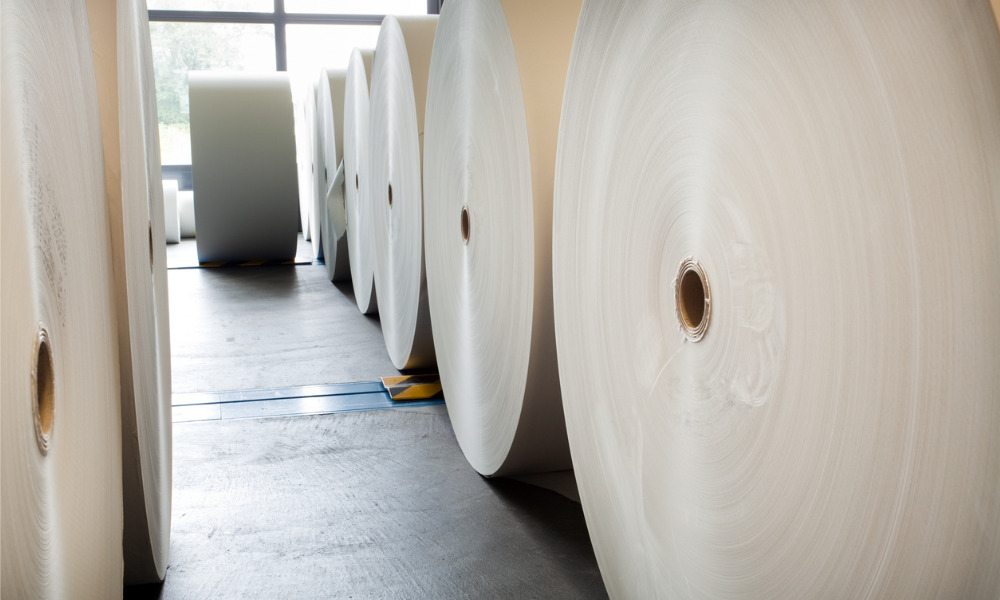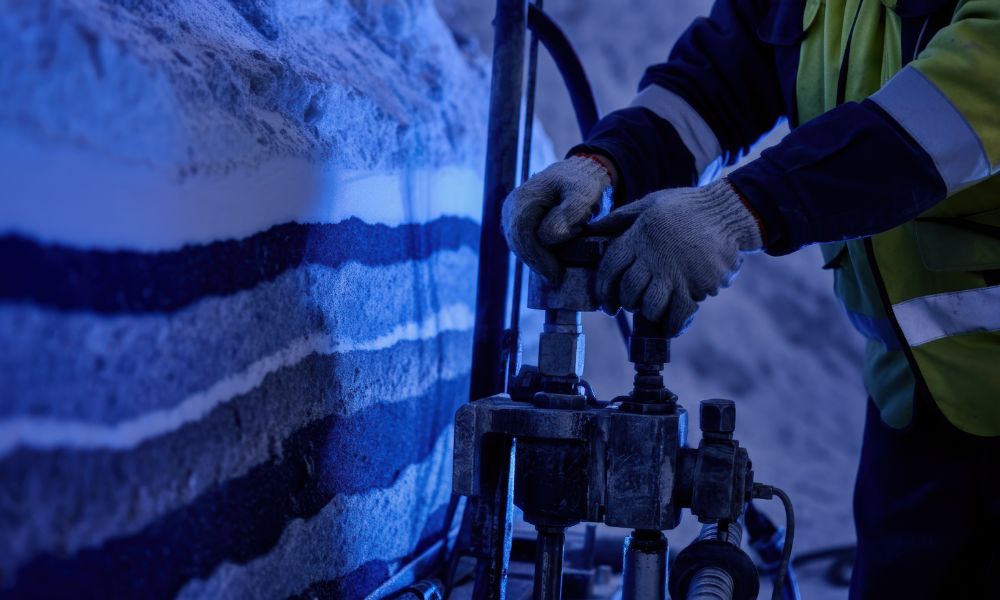The defendant failed to ensure that the rolls were transported in a manner where they would not tip, collapse or fall

Green Belting Industries Ltd. was fined $60,000 in provincial offences court in Mississauga, Ont. for a worker injury in violation of the Occupational Health and Safety Act.
The company – a manufacturer of polytetrafluoroethylene (PTFE) tapes and adhesives – pleaded guilty as the worker was injured when a roll of paper slid from a lifting device that should not have been used for the task.
On Feb. 6, 2019, a worker was tasked with moving paper or glass rolls in the area of production equipment while using a stacker. The stacker is a small walk-behind lifting device with the ability to lift and carry relatively low weight loads.
When moving or removing rolls from the racking structure, workers were expected to use a forklift or reach truck; both devices are designed for lifting heavier loads.
At some point during the day, the worker retrieved a paper roll from the racking structure. The worker determined the forklift was not available to be used, and the worker was not a trained forklift operator. Instead, the worker used the stacker for the task. The stacker was not a lifting device designed to complete this task nor was it the worker's role to move rolls from the rack with the stacker.
The stacker is stabilized by two legs called stabilizing outrigger arms. The lifting forks on the device are controlled by a control handle at the back of the stacker. Operators stand behind the machine and operate the lifting forks using the control handle.
The racking structure is made of steel tubing. At the bottom of the structure are two hollow rectangular steel tubes that are welded to the structure. The hollow steel tubes serve as pick-up points so the racking system can be transported with a lift truck. The steel tubes obstructed the stabilizing outrigger arms of the stacker.
This prevented the stacker from being positioned in a perpendicular and centered position relative to the rolls being stored on the racking structure. Due to this obstruction, to retrieve a roll, the worker had to bring the forks of the stacker in on an angle.
After positioning the forks under one of the paper rolls, the worker lifted the paper roll and backed up the stacker. Due to the imbalance, caused by the roll not being centred on the forks of the stacker, the roll started to tip to the right. The worker then tried to push the roll back on the forks of the stacker. Despite this attempt, the 823-pound roll fell off the forks and struck the worker, who received critical injuries.
The Regulation for Industrial Establishments stipulates that an employer must ensure that material, articles or things are transported or stored so that they will not tip, collapse or fall [(section 45(b]). The defendant failed to ensure that the rolls were transported in a manner where they would not tip, collapse or fall, contrary to section 25(1)(c) of the act.
Recently, printing company Imprimeries Transcontinental 2005 S.E.N.C. and meat manufacturer Country Prime Meats Ltd. were both fined for separate worker injury incidents.





